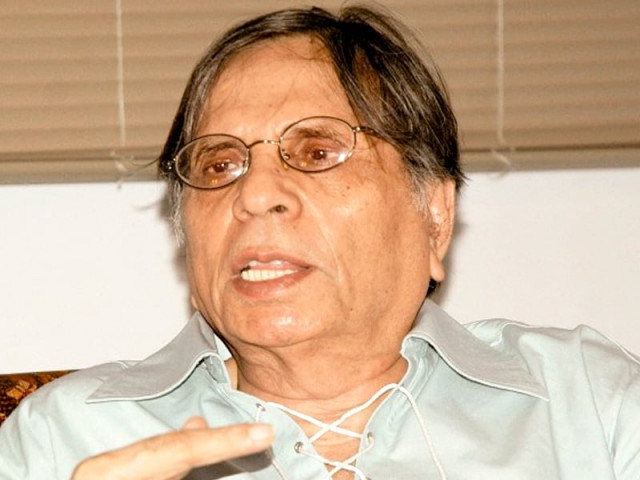Rediscovering Pakistan: ‘Gilgit Baltistan has not been ignored in terms of studies, written word’
A research thesis on the region compiled by KU students explores its history and traditions

Dr Mubarak Ali. PHOTO: FILE
Dr Ali was speaking in context of the book that is actually a research thesis compiled by the students of the University of Karachi's Pakistan Study Centre along with associate professor Navin Hyder. The students, under the supervision of their teacher, researched extensively on the lesser known area and its culture and traditions in a historical context.
Dr Ali disregarded the panel's notion that the region has been completely ignored as far as studies and the written word is concerned. He said that Gilgit Baltistan is an interesting area because geographically it is surrounded by valleys and its people have jealously guarded their customs and traditions. "You would find the people much closer to China, as they find Chinese universities closer to travel to. The state didn't open education institutions for them and the ones that exist don't offer that level of good quality education," he said.
Riaz Shaikh, a faculty member of Szabist, called the book timely. He said that such subjects are not only covered less than their easily accessible counterparts but also provide much-needed information and perspective. "Contrary to the concept that we should find our roots in the Middle East, this book tells us that our roots are indeed in South Asia and Buddhism was once a popular religion in this region," he said.
It was in 1975, during the rule of Zulfikar Ali Bhutto, that some reformation for the region was started, which halted soon after until 2009 when self-rule was introduced, said Shaikh. He brought to light some of the prevailing crises of the region, such as its dying language, for which nothing is being done on a national level.
"The importance of the Gilgit-Baltistan region has certainly increased, especially now that the Pakistan China Economic Corridor is being built," he said. "Do we have people from Gilgit-Baltistan on board for this or will it be part of the same narrative as Balochistan? There should be a debate on this."
Hyder lauded the efforts of the students who undertook the charge of this study. "The fact that the media doesn't bring stories of this region to the mainstream, answers the question of the lack of awareness among the people," she said.
Published in The Express Tribune, September 25th, 2015.

















COMMENTS
Comments are moderated and generally will be posted if they are on-topic and not abusive.
For more information, please see our Comments FAQ